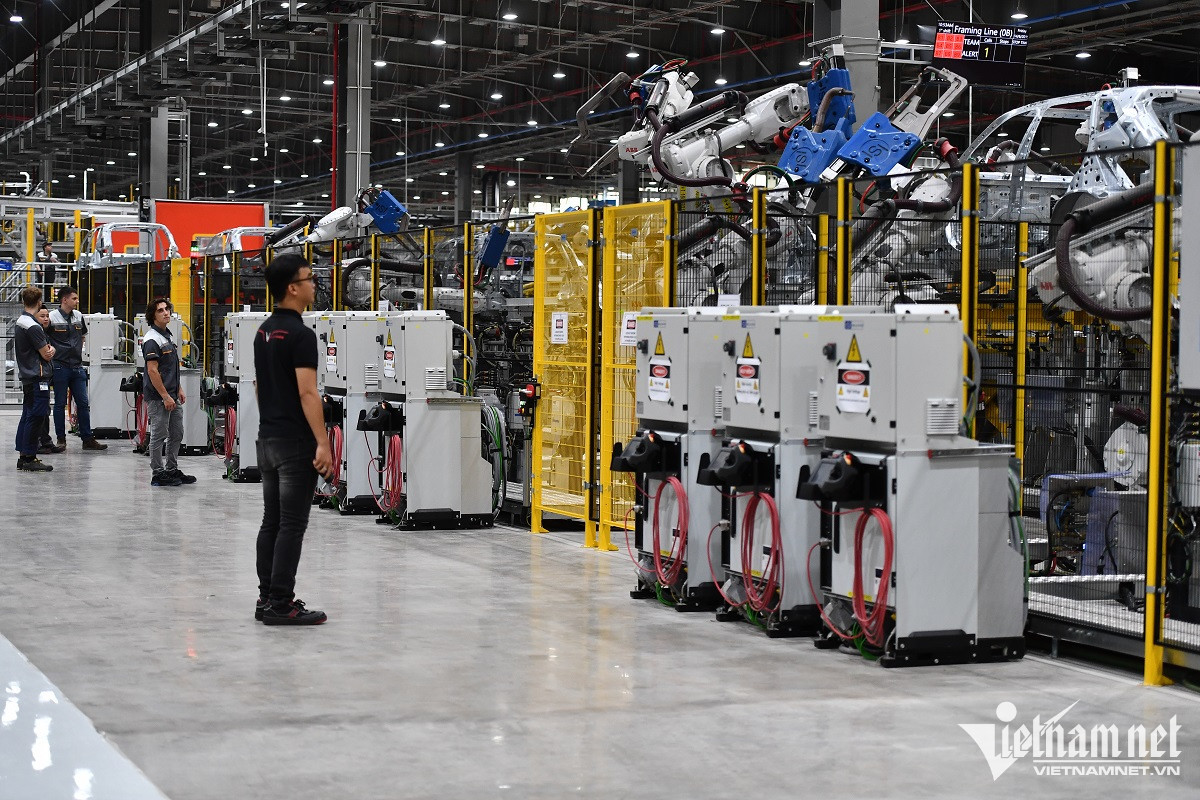
The statement that "Vietnam can only make screws for license plates" by the chair of the Vietnam Association of Supporting Industries Phan Van Tuat has stirred up the public.
Thaco Truong Hai’s CEO Pham Van Tai on February 24 told VietNamNet that many car models of the company, such as Mazda 3 and Mazda 6, have high localization ratios of 30-40 percent and that figures have been increasing with more sales.
“Moreover, in recent years, we have been exporting car parts to Kia factories in the region, such as the front bumper of the Kia Sorento,” Tai said.
He said that the locally made content of bus models is much higher with many mechanical engineering parts made in Vietnam. In late 2021, Thaco’s first consignment of semi-trailers was exported to the US. In 2023, export turnover of the products is expected to bring revenue of hundreds of millions of dollars.
Vietnam Motors and Agricultural Machinery Corporation (VEAM) also disagreed with Tuat’s comment, saying that it shows limited knowledge about the capability of Vietnam’s enterprises.
Its representative said that VEAM subsidiaries DISOCO and FOMECO have exported many car parts.
Nearly 10 years ago, truck parts made by 19-8 Mechanical Engineering Company, headquartered in Soc Son in Hanoi, received certificates on meeting German DIN standards and have been steadily exported to Europe, earning tens of millions of dollars a year.
Brother Vietnam in Bac Ninh manufactures many products that serve many industries including automobiles, household production, electric equipment, electronics, and aviation.
In recent years, Samsung leaders have witnessed the innovation of many Vietnamese enterprises.
More and more Vietnamese businesses have become capable of working as first-class vendors for the factories of the South Korean conglomerate in Vietnam.
In addition, with the expert talent development program and the Smart Factory program, Samsung wants to support the development of valuable industries in Vietnam.
Thanks to the programs, the number of first- and second-class vendors in Vietnam in Samsung’s global supply chain rose from 25 in 2014 to 257 by late 2022.
Market capacity and economic value
Vietnam is capable of making high quality products which can satisfy multinationals’ requirements.
However, the bottlenecks in market capacity and the weak material industry have slowed down the development of mechanical engineering and processing and manufacturing industries.
For automobile supporting industries, the Ministry of Industry and Trade (MOIT) said only a few Vietnamese vendors can join the supply chains of manufacturers and assemblers in Vietnam. The number is quite low if compared with that in Thailand.
Thailand has 700 first-class vendors, while Vietnam only has 100. Thailand has 1,700 second- and third-class vendors, and Vietnam has 150.
Nguyen Thi Xuan Thuy, an expert in supply chain, said the localization ratio doesn’t depend on regulations and desires of state agencies.
Management agencies cannot intervene in enterprises' localization ratios.
The most important factor that determines the success of enterprises’ localization programs is market size.
This is the relation between cost and benefit. If the market size is large enough, the investment rate is lower. If so, enterprises will invest in manufacturing car parts.
“There are no regulations on localization ratios for motorbikes, but the locally-made content in motorbikes is still high, over 90 percent. This is because the domestic market is large enough,” Thuy said.
To make car parts, the first thing needed is to ensure product quality, followed by ensuring economic value of products.
Thailand is an example. In 2000, it manufactured 300,000 cars. At that time, no Thai auto-makers thought of making engines.
But now, when Thailand manufactures 2 million cars a year, it has enough conditions to localize production of many car parts, including engines.
Vietnam’s machine manufacturing needs to solve other problems, including appropriate investment in the material industry.
Luong Bang - Phan Chi Hieu